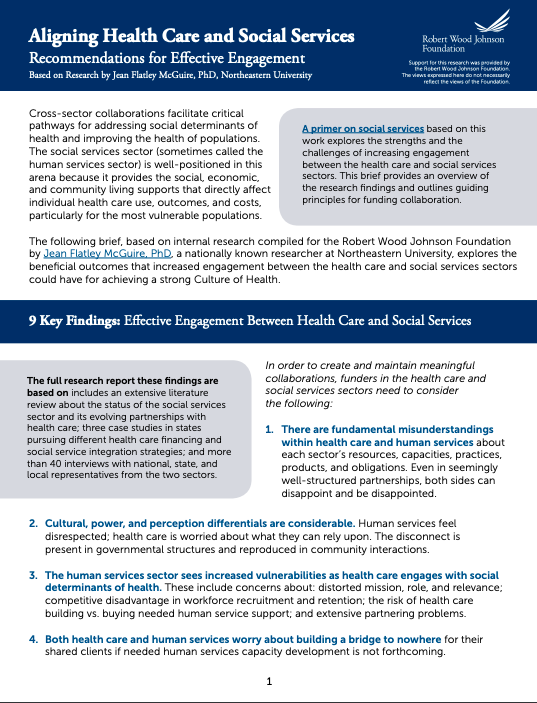
This brief outlines key findings and recommendations for establishing a more productive and rewarding relationship between the health care and social services sectors.
Based on research compiled for the Robert Wood Johnson Foundation by Jean Flatley McGuire, PhD, a nationally known researcher at Northeastern University, the brief explores the beneficial outcomes that increased engagement between the health care and social services sectors could have for achieving a strong Culture of Health.
Cross-sector collaborations facilitate critical pathways for addressing social determinants of health and improving the health of populations. A future alignment between the health care and social services sectors will benefit patients and providers alike, and may achieve efficiencies in both sectors. However, that alignment will not be successful if the social services sector lacks the resources to adequately meet its foundational social, economic, and independent living support roles that build well-being, self-sufficiency, and community engagement. Health care needs a strong social services sector that can both diminish risk through these core functions and reliably respond when health care-related non-medical service delivery or coordination is needed to achieve quality and cost improvements.
Both sectors require significant relational, cultural, partnership, capacity development, and workflow changes and a commitment to adequate planning, collaborative goal setting, intervention piloting, and course correction.

 Back to Resources
Back to Resources